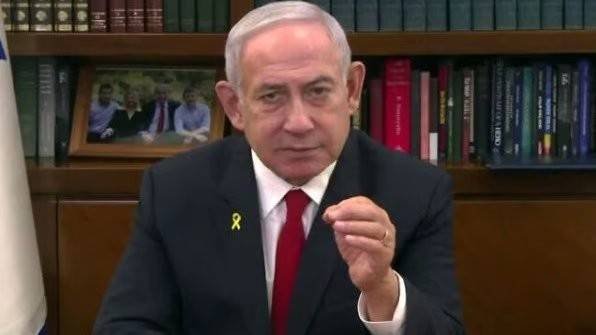On Sunday, Israeli Prime Minister Benjamin Netanyahu embarked on a significant diplomatic mission to Washington, D.C., where he is scheduled to meet with U.S. President Donald Trump.
This meeting comes at a critical juncture for Israel, as the two leaders are set to discuss pressing issues, including the release of Israeli hostages held by Hamas, the ongoing Iranian threat, and the potential for expanding peace agreements in the Middle East.
Netanyahu expressed optimism about the upcoming discussions, underscoring the robust alliance between Israel and the United States, as well as his personal rapport with Trump.
“We will deal with important, critical issues facing Israel and the region — victory over Hamas, achieving the release of all our hostages, and addressing the Iranian terror axis in all its components,” Netanyahu stated.
He emphasized that this axis poses a threat not only to Israel but to the broader stability of the Middle East and the world.
Before his departure, Netanyahu highlighted the potential impact of U.S.-Israel cooperation on regional dynamics, stating, “I believe that working closely with President Trump, we can redraw it even further, and for the better.”
He expressed confidence that their collaboration could lead to enhanced security and a broader circle of peace, paving the way for a new era of stability through strength.
Netanyahu’s visit is particularly noteworthy as he is the first foreign leader to meet with Trump in the White House, a gesture that underscores the strength of the Israeli-American alliance and their personal friendship.
This meeting comes at a time when Israel is navigating a fragile ceasefire with Hamas, a situation in which the U.S. has played a crucial mediating role. Trump is keen to see the ceasefire agreement upheld, but Netanyahu faces mounting pressure from his far-right coalition partners to resume military operations.
The agenda for the meeting will also include discussions on the possibility of normalizing relations with Saudi Arabia, building on the momentum generated by the Abraham Accords. Netanyahu’s visit is viewed as a vital opportunity for Israel to fortify its relationships with the U.S. and other regional players.
Finance Minister Bezalel Smotrich, a prominent member of Netanyahu’s coalition, has called on the Prime Minister to “strengthen our grip and sovereignty over the West Bank.” He emphasized the stakes involved, advocating for a decisive victory in Gaza, the dismantling of Hamas, and the return of all Israeli hostages.
Smotrich also highlighted the need to bolster security along Israel’s borders with Syria and Lebanon, as well as addressing the Iranian nuclear threat. He warned that failure to act could lead to a collapse of the government, stating, “We must strengthen our grip and sovereignty over the homeland in Judea and Samaria.”
The far-right party Otzma Yehudit has already exited the coalition in protest of the current ceasefire, further complicating Netanyahu’s political landscape. With Smotrich’s support for the Religious Zionism party, the stability of the government remains precarious, and any perceived inaction could lead to significant political fallout.
In contrast, opposition leader Benny Gantz extended his best wishes to Netanyahu for the trip, recognizing the importance of the meeting with Trump.
Gantz stated, “The meeting with President Trump is of paramount importance for advancing the return of all our hostages, coordinating the response to the Iranian challenge, expanding the circle of normalization, and removing Hamas rule.”
Netanyahu’s delegation for this pivotal trip includes Strategic Affairs Minister Ron Dermer, Government Hostage Coordinator Gal Hirsch, and Dr. Eyal Heller, a senior cardiologist at Sheba Medical Center. Heller’s presence has sparked speculation regarding Netanyahu’s health, particularly following his heart surgery in December, although the Prime Minister’s office has not confirmed any health-related concerns.
As Netanyahu prepares to meet with Trump, all eyes will be on the Israeli Prime Minister as he navigates the intricate web of regional dynamics and domestic political pressures.
The outcomes of these discussions could have far-reaching implications for Israel’s security, its relationships in the region, and the ongoing challenges posed by Hamas and Iran. The stakes are high, and the world will be watching closely as the two leaders engage in what could be a defining moment for both nations.








